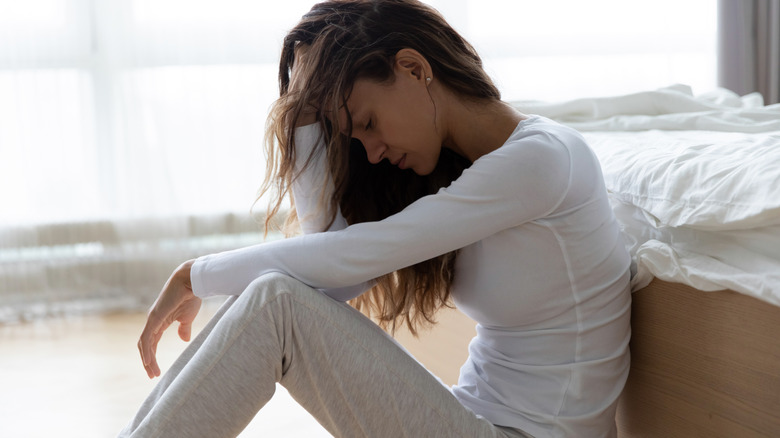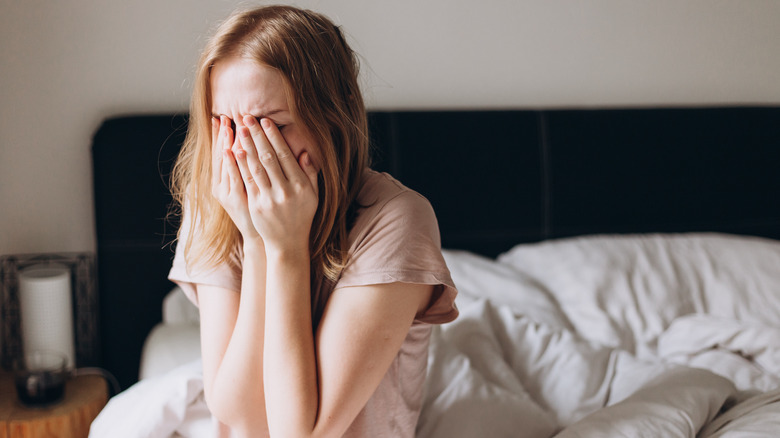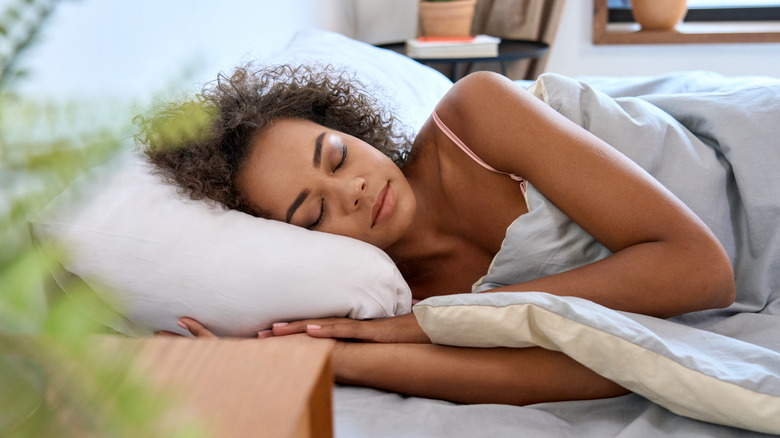Here's Why You Get So Tired After Crying
Crying is a strange thing, and not just because it causes odd bodily sensations, like immediately making your nose run. Many people avoid it like the plague and consider themselves non-criers. Yet, so many others cry at the drop of a hat. When they get good news, they cry tears of joy or even when watching an emotional commercial (via Redbook). Sometimes, when bad news is delivered, the waterworks just can't stop flowing. Fortunately, most people fall somewhere in the middle of the two extremes.
People tend to cry more when they feel overwhelmed or have been under stress for long periods of time. Psychologist Dr. Pamela Rutledge tells Woman's Day, "Stress causes fatigue, which diminishes our ability to self-regulate. This makes us more vulnerable to emotional exhaustion which can also make us quicker to cry."
If you've ever had a long crying session, you've probably noticed that you feel absolutely spent afterward and all you want to do is lay down and take a nap. There's a biological reason for this.
What crying does for your body
No one likes to cry. Crying is often the reaction to some heavy emotional trauma whether it's breaking up with a partner, losing a job, or even worse, a loved one. Sometimes crying can come from intense frustration and the feeling of being stuck in a situation that disturbs you and in which you can't find your way out. Though you might think streaming tears down your face can't possibly help you, crying is important. A lot of good things happen to our bodies when we cry.
According to Healthline, crying allows your body to quite literally comfort and reset itself. When you cry, your parasympathetic nervous system (PNS) switches on, giving your body the signal to "rest and digest." In addition, tears are filled with stress hormones, so when you can't stop shedding them, you're actively ridding yourself of chemical messengers filled with stress, including cortisol and prolactin. At the same time releasing endorphins and oxytocin.
The tired feeling after crying is a healthy release
Not only do your hormones and nervous system go through an emotional reaction, but your whole body has an intense experience when you cry — especially if it's prolonged. Psychology professor Lauren Bylsma tells The Swaddle, "Crying is hard on the body. It takes a lot of energy and is something that takes over your whole body."
Your eyes excrete an abundance of tears which makes them feel heavy and swollen. Your heart rate increases, and you may shake and have shallow breathing.
Once the stress hormones from crying are expressed and oxytocin is released, your body starts to feel a sense of calm takeover. You go from not being able to catch your breath or stop pouring tears to noticing you begin to feel a little more still and eventually slightly even tranquil. This is also when you start to feel tired.
After a good healthy cry, there is actually nothing better than taking a nap to help settle your mind and help your body restore.


